Cargando...
Recursos educativos
-
Nivel educativo
-
Competencias
-
Tipología
-
Idioma
-
Tipo de medio
-
Tipo de actividad
-
Destinatarios
-
Tipo de audiencia
-
Creador
Lo más buscado
- ejercicios ortografía
- Integrales
- Cálculo del área del círculo de Arquímedes
- Fichas ortografía
- Castillos medievales
- Procesos y Medios de Comunicación
- Actividades musicales en primero
- Planetas interiores
- Plantillas de letras primaria
- Alimentación saludable en sexto
- Niños y salud
- Derechos infantiles
- Competencias básicas
- Juegos matemáticos cuarto
- Actividades de repaso en sexto
-

Self-evaluation 6 - The first civilizations: Mesopotamia and Egypt
EduBook Organización
- 3004 visitas
Choose the best answer to each question: Where did most of the Egyptian population live? What activities predominated in the cities? Is it true that the Egyptians used honey and dates to sweeten their…
-

Answer the questions
EduBook Organización
- 2981 visitas
Answer the questions: Look at the photos. Which types of jobs can you see? Can you think of a job that involves producing food? And one that involves helping people? What job do you want to do when you grow up?
-
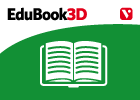
Summaries - Prehistory
EduBook Organización
- 2982 visitas
1. Hunters and gatherers The first period of Prehistory is called the Palaeolithic period and it lasted from the appearance of the first humans until the discovery of agriculture. Obtaining food and…
-

True/false. Main characteristics of the Neolithic period
EduBook Organización
- 2965 visitas
Decide if the following statements are true or false: The Neolithic period began in the South of Europe. ➝ The advances made in the Neolithic period were the cultivation of land and the domestication…
-

True/false. Multicellular organisms
EduBook Organización
- 2946 visitas
Decide if the following statements are true or false: Living things that are made up of many different cells are called multicellular organisms. ➝ The cells in these organisms feed themselves and…
-

Fungi and lichens
EduBook Organización
- 2950 visitas
6.1. Fungi Fungi are heterotrophic organisms (parasites or saprophytes) that have many different unicellular and multicellular forms: Mushrooms, which grow in forests and fields. Moulds, which grow on…
-
Answer true or false
EduBook Organización
- 2905 visitas
Answer true or false: Ecosystems consist of a physical environment and a biological community. → Living things in a biological community do not interact. → Plants can be producers or…
-
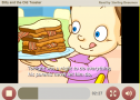
Billy and the old toaster
Tiching explorer Organización
- 1 lo usan
- 4779 visitas
The resource consists of a 3-minute video with an animated story. It includes vocabulary regarding family, food, growing-up, behaviour, etc. It's read aloud by Sterling Beaumon and the text is written…
-
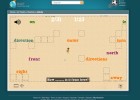
Video games: reading
Tiching explorer Organización
- 1 lo usan
- 5231 visitas
This page collects a series of games (sound match, blast off, fill-ins) to practice reading vocabulary about different subjects: directions and prepositions, time, jobs, art, emotions, shapes and…
-
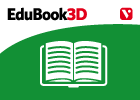
Trench warfare - The First World War and the Russian Revolution (1914-1939)
EduBook Organización
- 2875 visitas
The other face of the First World War, behind the battles fought, the countries involved and the statistics published, was trench warfare. For many, this was a daily reality that brought with it nothing…
Te estamos redirigiendo a la ficha del libro...












